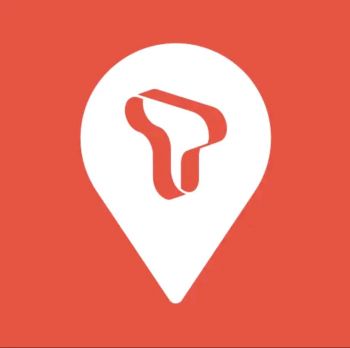Tmap stops free data benefits for its customers
Consumers’ backlash… Concerns about monetization of app usage
Increased worries about taxi drivers and freight drivers
Real-time traffic data usage per month
3 minutes on YouTube, 20 minutes to play music
Large amounts of map data… WiFi download available

Tmap application
[아시아경제 차민영 기자] “It’s the platform’s tyranny. It’s about using an unlimited number of data plans.” (During media interview with taxi driver A)
Tmap Mobility, which was spun off from SK Telecom at the end of last year and declared a leap forward as an all-in-one mobility service company, was recently engulfed in a controversy about’platform tyranny’. This is because concerns over a data rate bomb grew in the process of announcing that SK Telecom customers will end the free data provision in the process of using the’Tmap’ application from the 19th of next month. It is argued that T-map attempts to convert to a fee after gathering customers with free benefits and solidifying the first place.
The problem is map data… WiFi download available
Tmap announced on the 11th that it will end the free provision of Tmap data, aka’zero rating service,’ to SK Telecom customers through an app announcement. In the future, SK Telecom customers will be deducted from data when they use T-map like existing KT or LG U+ members. If Tmap Mobility, which was newly spun off under the current Fair Trade Act, does not provide service usage fees to the parent company, discrimination may arise. In the news that the existing free service is being changed to a paid There has also been a strong backlash, saying, “Forcing the unlimited data rate system,” centered on workers in related industries such as taxi drivers and truck drivers.
However, consumer concerns are currently excessive. First of all, there are two main types of data required when customers use T-map: real-time traffic information data and map data. In the case of real-time traffic information, Tmap customers use an average of 48MB per month. This is the amount required to watch 3 minutes of YouTube videos and 20 minutes to play music. Even taxi drivers with a lot of usage use 85MB per month on average.

You can download the map by going to Menu-Settings-Version in the Tmap app. The picture shows the app screen
The part that takes up a lot of data usage is on the map side. This is a problem that can be solved by downloading the map via Wi-Fi in advance. Go to the top-left menu of the main screen-Settings-Version, and then click’Use Download Map’. As of this day (21st), the latest version is the updated version on March 16th. After downloading over 3 to 5 minutes, the new map cache is stored in the data warehouse of the Tmap app, which is up to 2GB in size. 1GB is 1000MB, and 2GB is 2000MB, so the storage is ample.
According to the company’s estimate, only 0.2% of Tmap’s actual users are expected to incur additional data charges. The amount of billing is set at 0.011 won per 0.5 KB for pay-as-you-go users. 1MB is 1000KB, and it is calculated that if you use 48MB, which is the average Tmap usage, it will be about 1081 won. Tmap plans to provide 100MB for free for 6 months as a reward for customers.
T-map that is sneaky at this time
Some argue that T-map, which has secured first place in navigation with free benefits, uses its market share as a hostage and has a paid policy. This is a bit unfair for companies. SK Telecom provided paid services to KT and LG Uplus customers with a monthly fee of 4,000 won and data deduction after T-map, which was launched in 2011 for its customers, gained popularity among drivers. When it started to open the entire monthly fixed amount for free in 2016, Tmap’s market share in the navigation market of all telecommunications companies already exceeded 70%.
As a big data platform such as restaurant and insurance recommendation service, the process of collecting and using personal information has also come to the fore. Tmap Mobility explained that in the case of driving habits, only information that has received personal consent is collected, analyzed and utilized in connection with insurance companies. For restaurant recommendation, it is analyzed only for the higher purpose, and related personal information such as age or gender is not collected.
Regarding this suspicion, an official from Tmap Mobility said, “The profit compared to the fixed expenditure is significantly low.” “I explained.
Reporter Cha Min-young [email protected]
